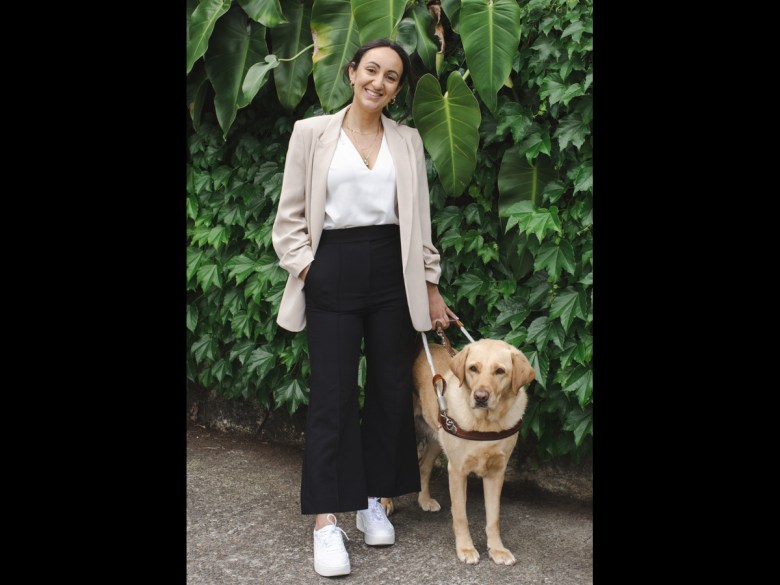PhD candidate Chrissy Antonopoulos is challenging the biases that can limit people with disability – and her work on the subject has recently earned a prestigious award.
Antonopoulos, a registered psychologist, is currently awaiting confirmation of her PhD which focuses on implicit bias towards people with disability. Her research found that people with disability experience negative implicit attitudes and stereotypes and that these can stop them from achieving goals like obtaining employment.
She also wrote a paper derived from her thesis, which was published in the journal Rehabilitation Psychology last year. This paper attracted the attention of the Division of Rehabilitation Psychology of the American Psychological Association, and was awarded the Harold Yuker Award for Research Excellence – an annual award given to the best paper published in the journal.
Antonopoulos said she was shocked to receive an international award.
“It goes to show [this issue] is really on the agenda internationally, and I hope it will… open some discussions and hopefully more research in the area,” she said.
Her research is the first data in Australia on implicit bias towards people with disability, she added.
Antonopoulos was drawn to this field of research in part because of her lived experience. She became legally blind after being diagnosed with a visual condition in her mid-twenties, and quickly noticed a difference between trying to get a job with a disability versus without.
“After I lost my vison, it was so hard to find work. I had multiple experiences of discrimination. I spoke to other people and everyone was saying the same thing – that this is what happens when you’re disabled,” she said.
A researcher at heart, she decided to delve into the subject further through a PhD to learn how implicit bias affects the hiring of people with disability, and what other factors may play a role. It’s an area that hasn’t been studied very much in Australia, she explained. But the current disability strategy is focused in part on changing attitudes towards disability, and evidence is needed to support it.
Antonopoulos hopes that her thesis will lead to the development of training and education about how to challenge and reflect on implicit biases, the impacts they can have and how to limit their effects in settings like employment, healthcare and education.
“We all have implicit bias – as much as some of us would like to think that we don’t, we all do and that’s OK. The main goal is to be able to become aware of it, to acknowledge that, and to reflect on how it might be affecting our actions and choices,” she said.
Ultimately, people should be able to recognise how implicit bias can shape their decision-making, and aim to counter it, she added.

